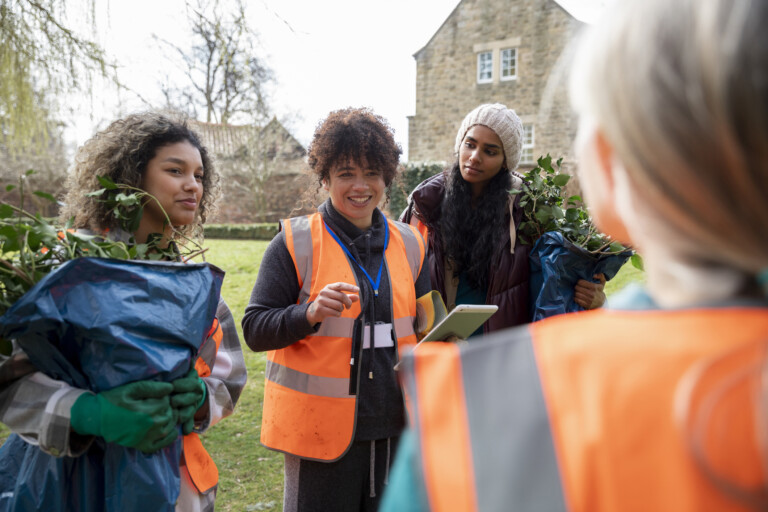Accelerating Local Retrofit: The Power of Collaboration

Building retrofit strategies that enhance local network capacity and resilience is a crucial part of the retrofit challenge. Hertfordshire authorities recognised this need and welcomed Local Area Retrofit Accelerator (LARA) to help us develop a coordinated approach. The Hertfordshire Climate Change & Sustainability Partnership was tasked with progressing retrofit measures as part of the Hertfordshire Growth Board Vision & Missions.
The LARA pilot is being delivered by The MCS Foundation and supported by UKGBC, National Retrofit Hub and others. The pilot is funded by the MCS Foundation, Greater South East Net Zero Hub and the Aurora Trust. The pilot is aiming to develop a facilitated process to build a strong foundation for retrofit activity by fostering collaboration between public, private and voluntary sectors towards a shared vision
Fragmentation and Barriers to Retrofit
Despite good intentions, local authority-led efforts across Hertfordshire were fragmented, which risked inefficiencies and duplication. Interviews with planners, asset managers, sustainability teams, and housing officers revealed that many teams believed they were the only ones working on retrofit. Our research, including a Hertfordshire-wide homeowners’ survey with over 1,200 respondents, confirmed resident demand for retrofit but highlighted key barriers:
Harnessing Local Authority Leadership for Retrofit Success
LARA provided a framework, workshop facilitators and industry experts to consider the retrofit system across Hertfordshire and co-create a plan to help get our buildings improved, at pace. Through LARA, we are working collaboratively to develop a county-wide approach that ensures:
- A shared vision for what retrofit can achieve, leveraging co-benefits such as fuel poverty reduction, economic growth and adapting to a changing climate
- A fully engaged process that puts residents, businesses, and key stakeholders in the centre of discussions.
- Partnership working to align funding, scale up deliver and potentially secure greater investment.
- Targeted actions that balance immediate priorities with long-term systemic change.

Building Confidence Through Coordination
Homeowners are more likely to retrofit if they have trusted guidance”
A key insight from LARA was the variety of collaborative tools at our disposal. While a Retrofit One Stop Shop (ROSS) is one approach, other valuable actions include coordinated communications, sharing intelligence and best practice to align projects, targeted supply chain support and the potential for joint funding bids – all requiring fewer resources than a full-scale ROSS.
Homeowners are more likely to retrofit if they have trusted guidance. Our survey found that over 65% of respondents valued an advisor to help select measures, while 4 out of 5 would feel more confident if a local council (at district or county level) backed a coordinated service. However, confidence dropped if the service was delivered on a national scale – highlighting the importance of local leadership and investment.
LARA confirmed demand for ROSS but also articulated a governance structure to coordinate supporting activities so we can be confident in a fully mobilised ecosystem for retrofit.
Turning Strategy into Action
Over three full-day workshops, the LARA process brought key stakeholders together to co-create principles, articulate a vision and consider potential actions. Participants included representatives from colleges and training institutions, contractors (national and SMEs), NGOs, local authorities, registered social landlords, public health and more.
Instead of drafting a strategy first and seeking buy-in later, we engaged the full retrofit system from the start, which helped to foster a context of collaboration and shared ambition. We are now discovering that subsequent discussions and exchanges are more honest, engaged and fruitful because we invested time in those relationships initially.
We are currently endorsing a Commitment to Retrofit, and will soon socialise the draft strategy. Next steps include:
- Securing adoption of the Strategy by local authorities.
- Developing the membership and governance of a body to oversee delivery.
- Progressing actions prioritised by the group:
- Strengthening skills development and business engagement to underpin the local supply chain.
- Exploring financing mechanisms to support homeowners in taking action.

The Power of Collaboration
retrofit isn’t simply a case of informing and educating on heat pumps and pipe lagging”
The LARA project has shown that moving forward on retrofit isn’t simply a case of informing and educating on heat pumps and pipe lagging. The entire retrofit system needs to be nurtured to evolve into a dynamic and responsive entity. By working with local authorities, businesses, and communities from the start of the discussions, we can create a sustainable, resilient retrofit ecosystem that benefits everyone.
Hertfordshire worked hard to trust the iterative LARA process and made sure that key stakeholders invested the time in developing strong relationships. The resulting strategy and the research that underpins it gives confidence to all parts of the system that we should, and we can, enact the recommendations and that, with our collaborative efforts, every home in Hertfordshire is fit for the future.
Get involved in co-creating place-based retrofit strategies that support resilient communities by becoming a partner. Get in touch with our Co-Heads of Policy and Places, Anna and Joanne.
Related
UKGBC responds to the CCC’s Scotland Progress Report

UKGBC launches Framework to accelerate a nature-positive built environment

To succeed, the Warm Homes Plan must put resilience centre-stage

The Warm Homes and Buildings Plan: UKGBC Policy Team Analysis

